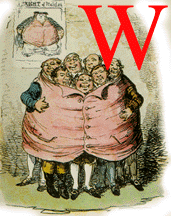 hen Alison Womble's submitted her impassioned, very
personal essay
about Sappho and Christina Rossetti, I responded by e-mail,
"As I read I kept thinking, 'well, yes, but . . . ' because you tend to
offer a parody of the Victorian period, which was one in fact during which an enormous number of women writers of fiction, nonfiction, and poetry flourished." Swinburne thought Christina Rossetti England's finest poet, and she was seriously considered as poet laureatte! Elizabeth Barrett Browning, was not only the acknowledged expert on late, post-classical Greek writers, until after death her poetry was far better known and much more commercially successful than her husband's. In fact, if one considers those Victorian poets who've made it into the inner canon defined by being taught in undergraduate courses, one finds a fairly small number: The Brownings, Elizabeth and her brother, Tennyson, Swinburne, Hopkins, and possibly Meredith, Hardy, and Arnold. I don't think that Christina Rossetti was particularly marginalized in her time; her neglect by modern scholars and critics owes far more to her religiosity, which is very much out of fashion, than to her gender.
hen Alison Womble's submitted her impassioned, very
personal essay
about Sappho and Christina Rossetti, I responded by e-mail,
"As I read I kept thinking, 'well, yes, but . . . ' because you tend to
offer a parody of the Victorian period, which was one in fact during which an enormous number of women writers of fiction, nonfiction, and poetry flourished." Swinburne thought Christina Rossetti England's finest poet, and she was seriously considered as poet laureatte! Elizabeth Barrett Browning, was not only the acknowledged expert on late, post-classical Greek writers, until after death her poetry was far better known and much more commercially successful than her husband's. In fact, if one considers those Victorian poets who've made it into the inner canon defined by being taught in undergraduate courses, one finds a fairly small number: The Brownings, Elizabeth and her brother, Tennyson, Swinburne, Hopkins, and possibly Meredith, Hardy, and Arnold. I don't think that Christina Rossetti was particularly marginalized in her time; her neglect by modern scholars and critics owes far more to her religiosity, which is very much out of fashion, than to her gender.
A good many Victorian poets have in fact been marginalized, and they are in general known only to specialists in Victorian poetry, if at all. Some are women, many more are men. Martin Farquar Tupper, whose doggerel made him one of the most popular and commercially successful Victorian poets, is now virtually unknown, as are the once popular followers of Shelley, the so-called Spasmodic poets. Even Arnold, who fifty years ago was considerered, along with Tennyson and Browning, one of the big three of Victorian poetry, has of late been taken far less seriously, in part because his emphasis upon loss of belief seems less important now that students of Victorian culture no longer so emphasize its proto-modernism as its sole source of value. Woman of once-immense popularity and influence have been excluded, too — Charlotte Elizabeth Tonna (generally known in her day only by her first two names) and Lydia Sigourney (generally known to Vcitorian readers as Mrs. Sigourney); Tonna wrote popular devotional poetry, Sigourney played to a kind of Victorian cult of death that had a major influence of Emily Dickinson. In contrast, the reputations of Christina Rossetti and Elizabeth Barrett Browning have continued to rise.
The great danger of over-emphasizing the degree to which Christina Rossetti and other important women writers were silenced, suppressed, or marginalized is that it makes them mere symbols of a socio-political condition and neglects their work. For too long Rossetti's twentieth-century critics and biographers neglected paying critical attention to her poetry because all they cared about, in the manner of cheesy romance novels, was identifying her "lost loves." Doesn't paying attention to Rossetti only as a presentative of victimization both condescend to her poetry and silence her as poet and woman? What biased chauvinist critic could do more?
Although a yahoo, country squire, and some contemporary critics might have said some of these things about women that Womble powerfuly argues are universal Victorian attitudes, women nonetheless created an important cultural space during the period. Nancy Armstrong's influential Desire in Domestic Fiction argues (1) that women did not lose or remain without power in the Victorian period and (2) that the Victorian emphasis on domesticity created the middle classes — and (3) that women's writing, particularly fiction, had a major role in this process and therefore in the formation of the modern world.
Last modified 22 April 2000